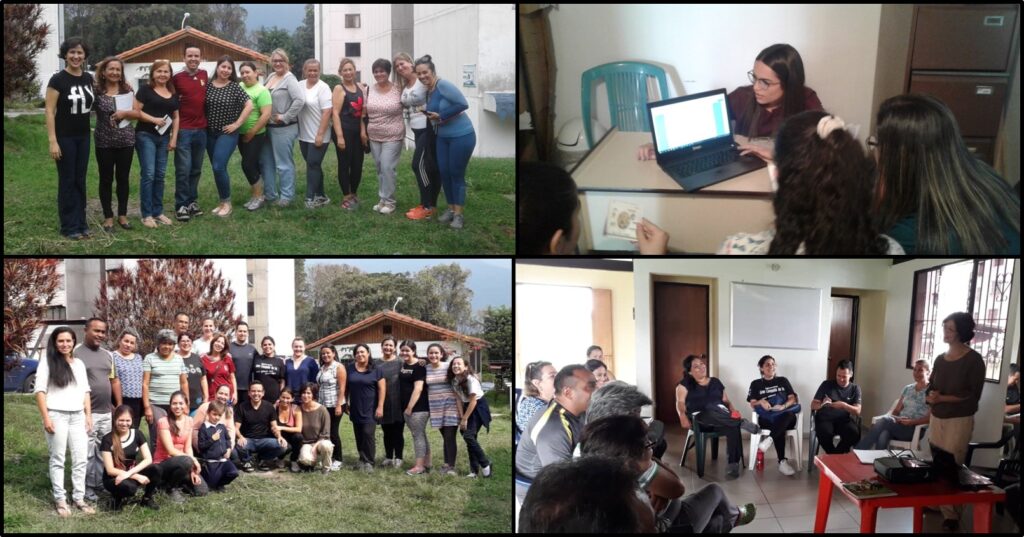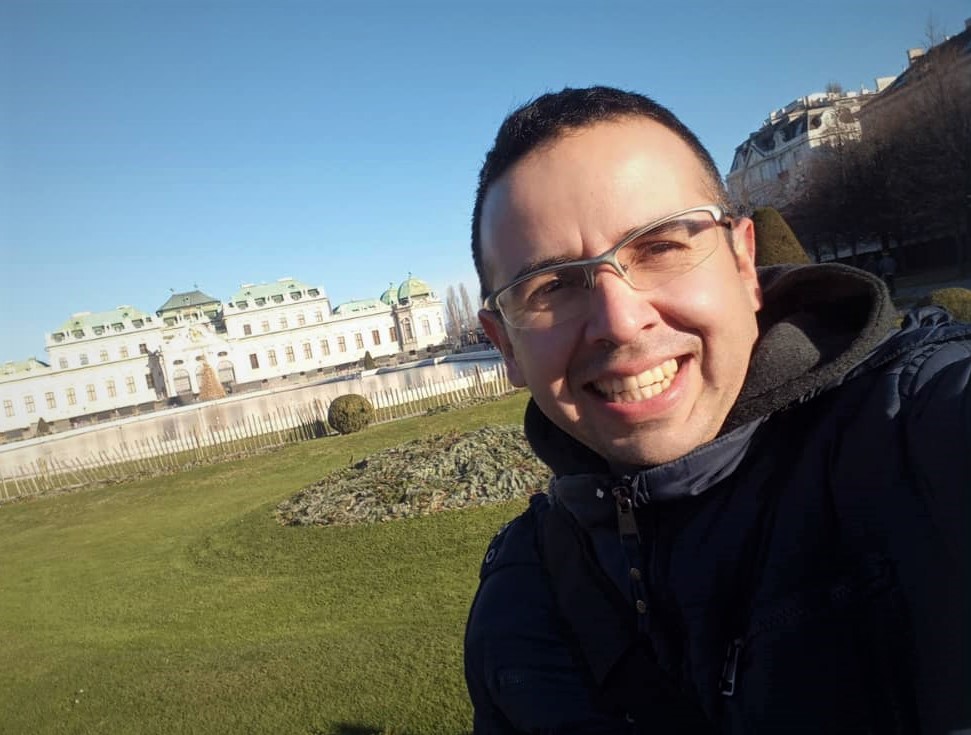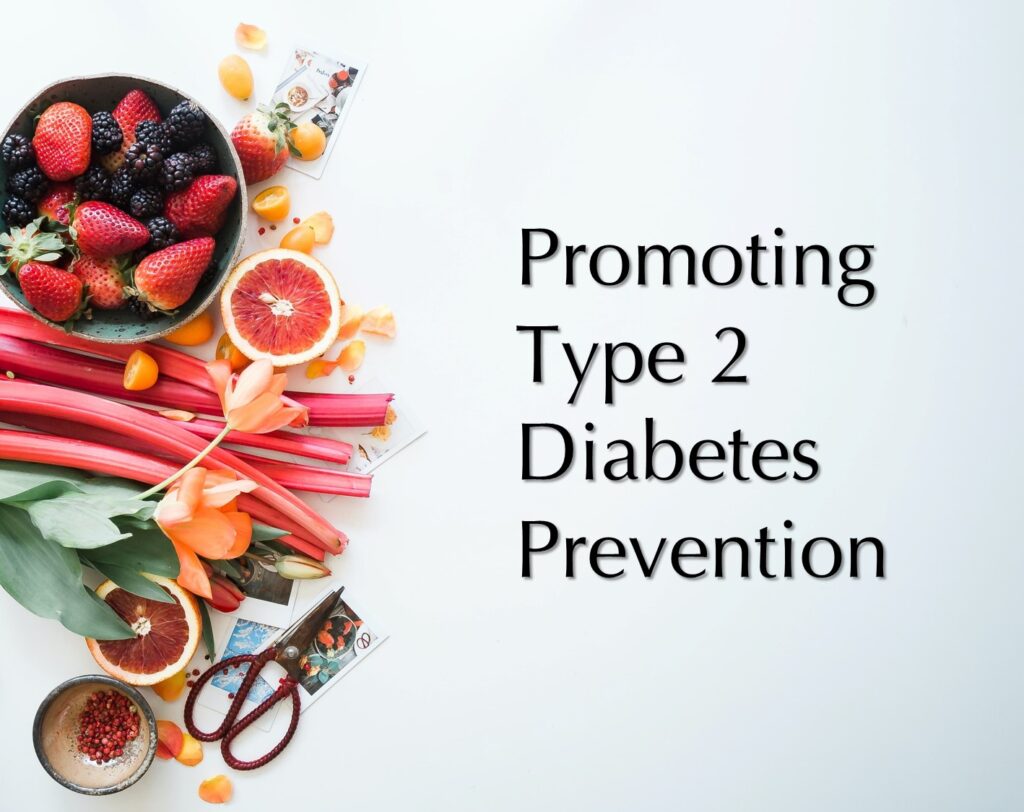How I ended leading two diabetes prevention programs in different cultures.
My fight against type 2 diabetes (T2D) is personal. T2D has made suffer, and removed from my side, many people that I loved.
As a physician specialist in internal medicine dedicated to attending patients with cardiometabolic risk factors, I attended to hundreds of people dealing with T2D complications. I spent hours convincing people to start insulin on time, to not delay, and then hours training them how to use it properly. But my heart always has been in prevention. Daily, I applied a scale of risk for T2D to all the people who attended my clinic and provide them education about their risk and how to prevent T2D.
In 2015, I was invited to collaborate in a grant proposal aiming to implement a diabetes prevention program (DPP) in Miami. I was aware of the original US-DPP and FINNISH studies, but this was the first time that I went deep into it, that I read it in detail about the implementation, about the challenges, and it was love to the first view. Despite the proposal never was submitted, I felt passionate about the program and started my shy implementation in my daily practice.
In 2016, I wrote my first intention letter to apply for a grant proposal to implement the DPP in Venezuelan high schools. For good reasons, it was rejected, I was “too junior”, with a lack of expertise in the topic. The Lown Scholar Program of the Harvard School of Public Health opens annual opportunities to apply, so I decided to prepare myself properly to apply again in 2018.
With Maria Infante, my wife, under the mentoring of Ramfis Nieto, we prepared the implementation of the Spanish version of the Prevent T2D program, which is a National US-DPP effort. We selected, hired, and trained a lifestyle coach to implement it, and we did the implementation in the community health care center of my city, Merida, in the Andes of Venezuela. With only four participants, we implemented our first DPP program for four months. This was our first experience. We saw how the participants get in love with the program. Additionally, Maria and I also did all the recommendations, she lost 16 kilograms, and I loss 12. Almost simultaneously, we implemented this program in a high school as part of the graduation project of my daughter. Four teenagers participated in the program for two months, in this case, I was the coach, and I learned how fast they can lose weight and how special and vulnerable they are to the information, without any doubt “another universe” to me, because I’m specialist in adults.

This short experience showed me the lesson that people like and engage positively in these programs, but also that it is very difficult to retain them for the long term (months in this case). The daily challenges of the environment impose huge distractions establishing a ton of priorities in front of them. I also learned that the content of the programs needs to be adapted to the culture. Small comments in the content that do not fit into the culture created a lot of distraction, for example, the suggestion of physical activities in the snow during the winter. We do not have snow and winter in Venezuela. These small details created a lot of noise in the participants, compromising the adoption.
In 2017, under the mentoring of Dr. Jeffrey I Mechanick, with Maria and Ramfis, we started the process to transculturally adapt the DPP to the Venezuelan population. We used the Transcultural Diabetes Nutrition Algorithm process that Dr. Mechanick used to adapt recommendations to diverse countries, and we started the journey of the transculturalization process, which is more than translation to Spanish. Diverse experts from Venezuela were involved, including a nutritionist, diabetologist, general physicians, and lay volunteers. In the end, the content of the program was adapted from the Balanced Lifestyle Program, which is the content of the original US-DPP study.
We led a third pilot evaluation in our community center with 24 participants. Another coach was selected and trained, a nutritionist also joined the team. It was impossible not to felt in love with the program. We attended all the sessions and saw on the front line the daily challenges that participants are facing. As part of the preparation of the proposal to attend the Lown Program in Harvard, I knew that having a pilot evaluation was a good background, but the only implementation of a DPP is not bold enough. So, we decided to implement in parallel another pilot study offering a liquid diet. A meta-analysis of the DPP with 36 pragmatic trials showed that the participants in the intervention group only lost 1.5 kg more than the control group, despite the small weight reduction, the incidence of T2D was 26% lower in this group. How can be achieved more weight reduction to have more benefits? The apparent answer was total diet replacement with a liquid diet. The DiRECT study in the UK showed huge effectivity in T2D remission with a weight reduction of more than 10 kg. So, we did our fourth pilot evaluation with 10 participants offering to them a liquid diet for one month and then the maintenance program.

I submitted this idea to the Lown Program, and I was awarded to attend in the summer of 2019. My research question in Boston was very simple: if we start the DPP program with a liquid diet for two months instead of the regular program would reduce more weight the participants? The exciting part of the training was to defend this idea for two hours in front of all the Lown Scholars, our professor Danaei Goodarz, and other professors, they were pitching hundreds of questions about the program, but maybe 85% were related to the liquid diet – now I know that the topic of liquid diet is very polemic everywhere haha – . I felt like El Gato Andres Galarraga (Venezuelan baseball player) hitting all the questions. I felt that presentation was successful, and the proposal was awarded as a pragmatic trial to be implemented in Venezuela. I believe that the success in that “defense” was that to all the questions my answers were “As we did…” “What we saw was…” “We were witness that the participants…” All the answers were using past tense verbs, not future. It is not the same to say that “you will try” something instead that “you did it”. Between the “will” and “do” there is a universe of possibilities. I knew this, which is why we did four pilot evaluations, to be prepared, to have the experience. We pay all pilots studies from our pocket, in the middle of the worst economic crisis in the history of Venezuela, and it was worth it
After that training, I flew to the Czech Republic for my new position as a Senior Researcher in the Kardiovize study. From day one, I started to persuade the team, our partners, and the PI to start the implementation of preventive programs. What we did was to repeat the formula, understanding the problem around obesity and T2D in the country, engaging the team and stakeholders, and working hard to do the transculturalization process for the Czech application. The cultural gap between the US-DPP culture and the Czech culture was larger than with Venezuela. Since the beginning, I felt the “mistrust” from many members of the team that an “American program” could be adopted and successful in Czechia. The right adaptation of the program required a huge amount of work. A lot of perseverance in the middle of pessimistic approaches. But we did it. And now, we have a curriculum content that I’m proud to say that the team feel is part of them.

In May 2021, we began in Venezuela the implementation of the pragmatic trial sponsored by the Lown Program to test the idea of the liquid diet vs the standard DPP. We were prepared to overcome the challenges of the Venezuelan crisis, but not the COVID-19 pandemic. Before starting the program, we did shy approaches to the community to find the participants, always implementing and promoting the rules to prevent the infection of the people involved and avoid disseminate the virus. This was a massive change in our strategy. Our experience doing population-based studies involved many participants, evaluating from ten to almost a hundred subjects in a single day. But now, only a few persons could meet. Despite this challenge, the needs of the population to be attended, and the hard work of the team compensated the problem. More than six hundred people were evaluated and 127 started the program. The results of the first months are promising and we are excited waiting to see the final results.
In July 2021, we began the pilot implementation of the Czech version of the DPP with 30 volunteers. I had a huge curiosity to see the differences with Venezuelan people. When everything was ready, we open the call for the evaluation to participate. In the first four days, our 30 spots were filled, the response was fast and satisfactory. Many members of the team were worried if the people are going to like the program, but this showed huge interest. When I was training the Czech team, especially the lifestyle coach that spend most of the time with the participants, I gave to them ideas of how we were doing things in Venezuela, but I never imposed orders, I used a lot of examples of how the people behave in the program, how they react to the information, and how open they are in my culture. The members of the team were expecting a “shyer” participation of their fellow citizens. I received a lot of feedback and comments about my ideas, many comments about how Czech people tend to behave in groups or alone, what is culturally appropriate to say or ask, and what we should avoid. I saw that they put a lot of boundaries, “cultural limits”. I felt how the team was worried about “scare” the participants. And I name “scare” because they used it a lot this word when I give them a suggestion. However, they were surprised, the participants of the Czech program have been very open, actives, communicative, and supportive to all the members. They created a feeling of community in the sessions, something that was not expected. We all are learning a lot. It is impressive to experience how people from different cultures like this kind of program. And the results of the first two months are very promising.
Last week, I had dinner with the Czech participants of the program, one-third of them were there. They told me their experience, how they were hesitating before starting, and how happy and good they feel now. They did a lot of questions to me about how the people in Venezuela were doing with the program, what differences can I see. It was a wonderful experience. Despite the cultural differences and the language barrier, I felt like in-home talking with my patients and people from the Venezuelan program about how to prevent T2D.
We need to do a massive effort worldwide to offer the opportunity to individuals at risk to have access to evidence-based preventive care programs. The demand is extremely high and the offer extremely low, and the challenges to do it very high. In low and middle-income countries, like Venezuela, people face enormous daily challenges to attend and maintain participation, however, those who do the commitment, immediately get in love with the program and see benefits. In high-income countries the story is different, the main question from physicians and stakeholders is “are these programs pay by the insurance?”. In the dinner with the Czech participants, one of them asked “do you think that this situation is going to change? Do you think that insurance and other stakeholders are going to move from the curative model to the preventive model?” Very good questions and my answer without hesitation was “yes”, I’m profoundly optimistic that we are moving in the right direction.
A decade ago, I was fighting against T2D attending to my patients, and educating my community, now as a researcher, I’m fighting against T2D testing new ideas that could be portable models for diverse populations and publishing epidemiologic information to understand what we are facing. I feel that this effort is putting some drops in the sea of knowledge about how to tackle T2D, and our programs, still small, positively influence many lives.
My fight against T2D is personal, I’m proud to say that I’m leading two teams in contrasting cultures. I hope you join too this fight against T2D and put in your drop of effort.

Dr. Juan Pablo González-Rivas
